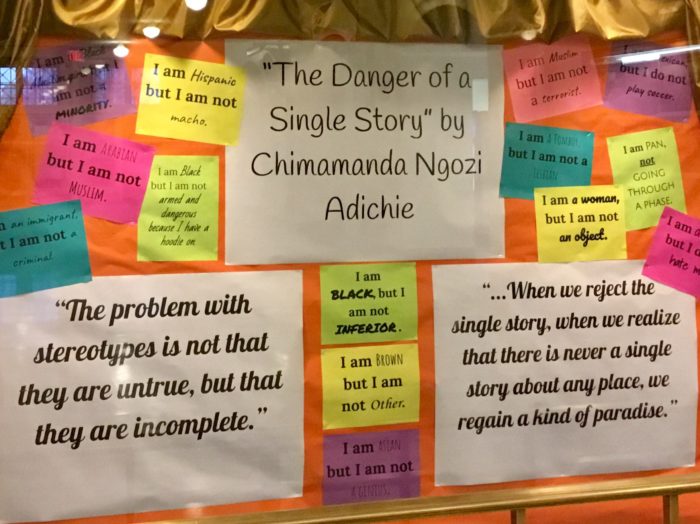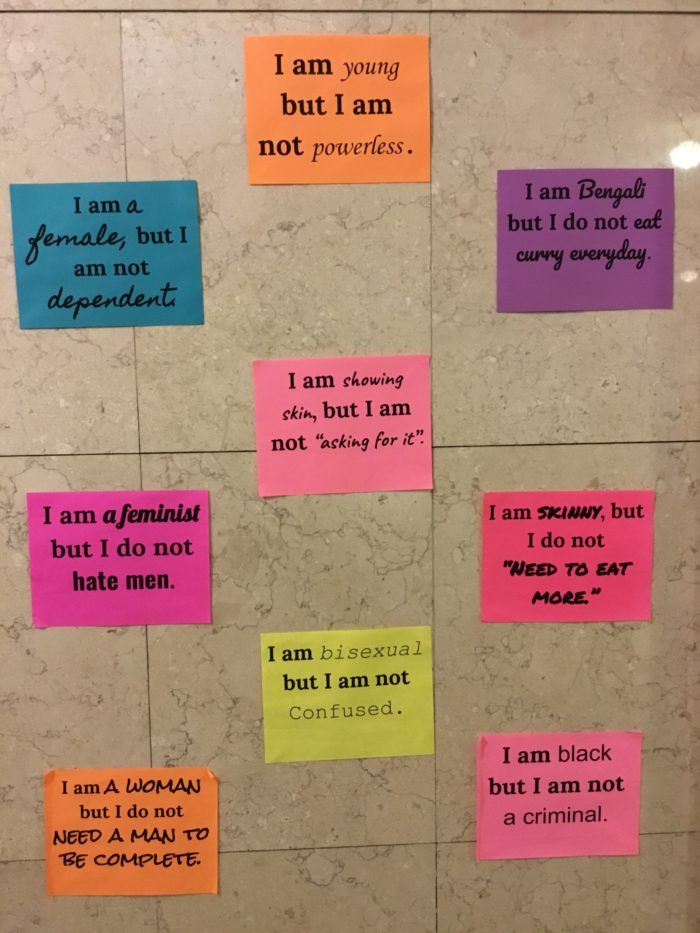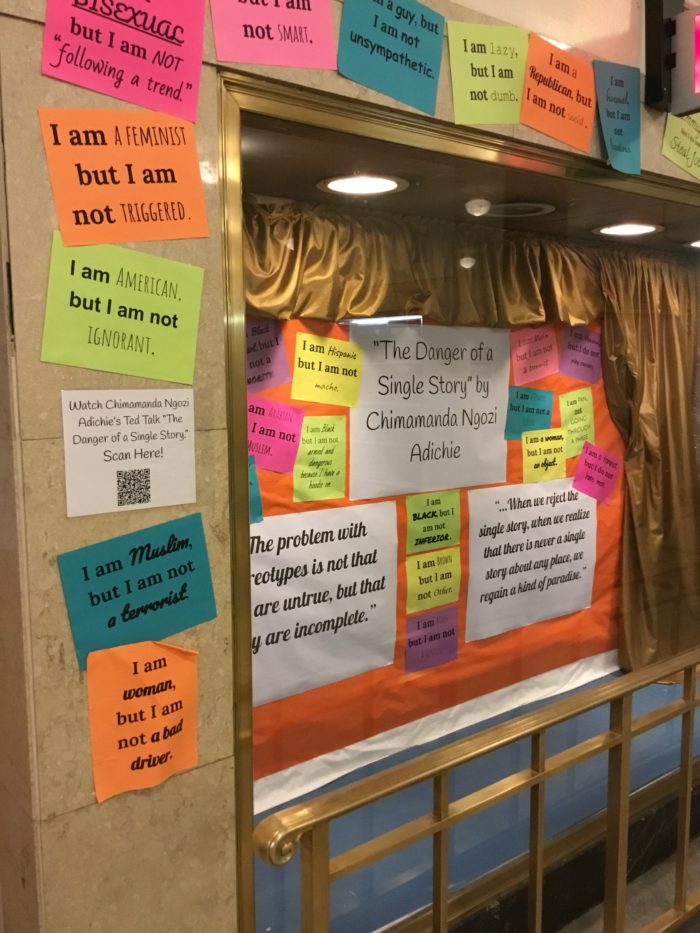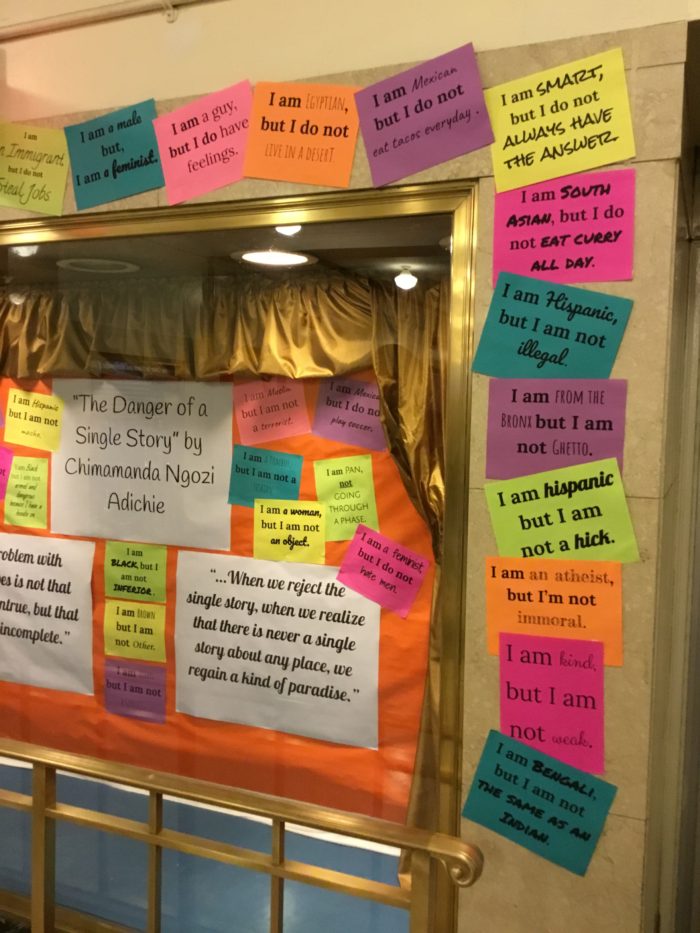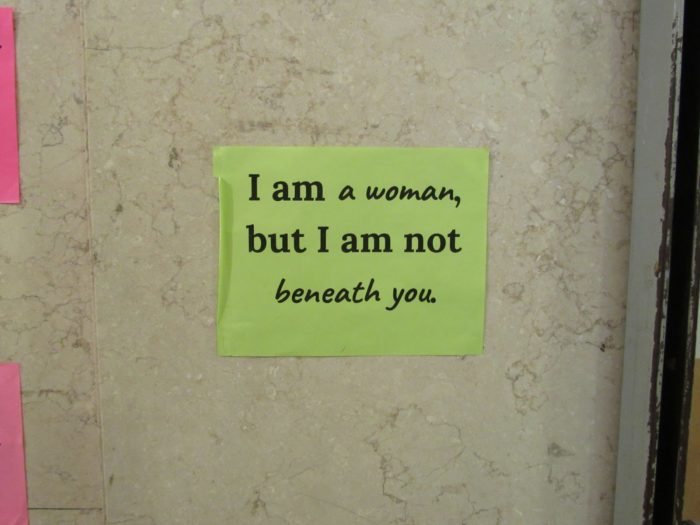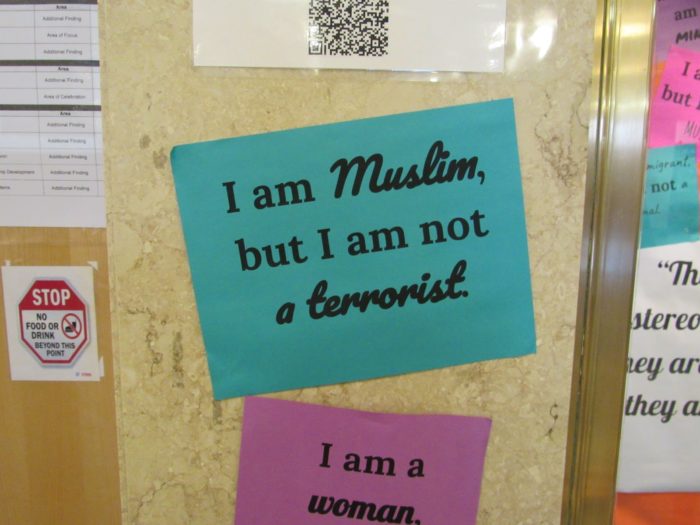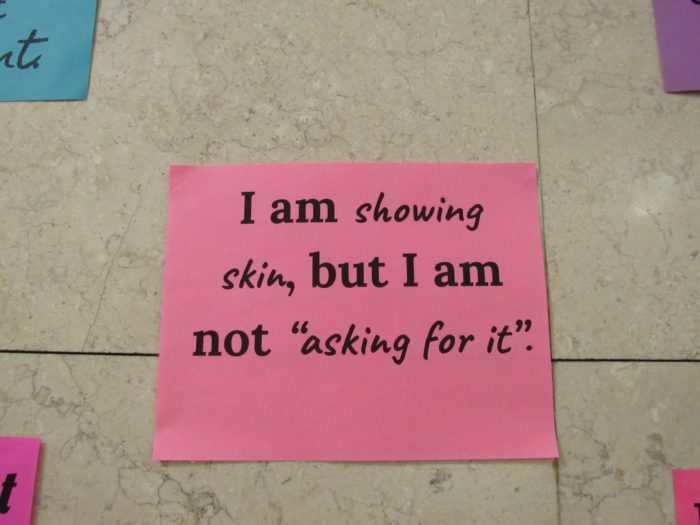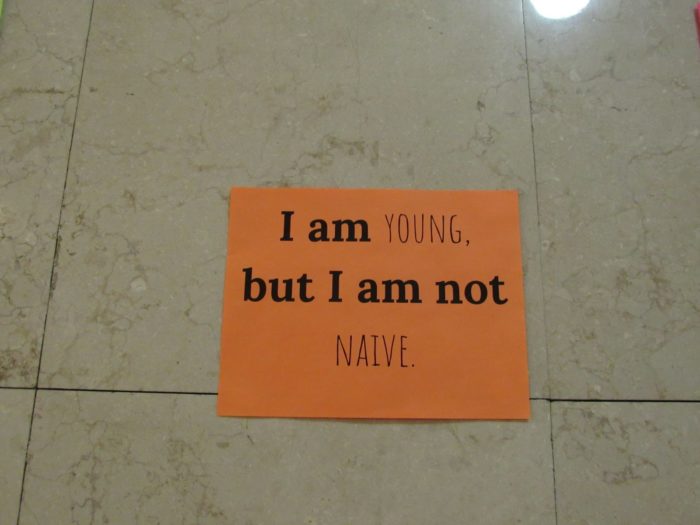By Rifath Islam
Often, we all live our lives according to a single story; a story that upholds a very narrow set of assumptions. Whether it be intentional or something that we have been programmed to think by society, it is not uncommon to be influenced by such things.
Recently, MCSM’s curriculum has been highly influenced by a powerful TED Talk given by novelist Chimamanda Ngozi Adichie. The talk is centered around the “dangers of a single story” and the damage they can do to our ways of thinking and how we tend to view other people as a result of them.
This year, Ms. Chiavola’s AP English class decided to take this idea one step further and make posters that reveal some of the “single stories” that have been bestowed upon them, and that are influencing their own lives. An exhibition of the results is now on display in the school’s main lobby.
Of the many single stories presented in the exhibition, the following are some of my favorites.
March is Women’s History Month and I find that this poster’s story cannot be more fitting. In recent years, women have become more outspoken, demanding their rights as free citizens be given to them, and bringing the meaning of true gender equality more into focus.
In light of recent events in New Zealand, the above story resonates with millions. Islamophobia has become more prevalent after the 9/11 attack 18 years ago, with it being defined by negative stereotypes that have been further promoted by the media.
.
Statistics show that in the United States, one in three women and one in six men have experienced sexual violence in their life. Sexual assault has become an increasingly common phenomenon in the world, and addressing it is growing more important with the state of the world today.
Despite all the complex societal issues being brought to public attention today, the younger generation has been responding in some of the mostintelligent ways when it comes to demanding solutions for each issue. I find that the stereotype of young people being unaware of the troubling issues in the world is completely the opposite of the truth. Young people, in fact, are the hope of the future, willing and able to support beneficial social changes that will improve the world we all must share.
